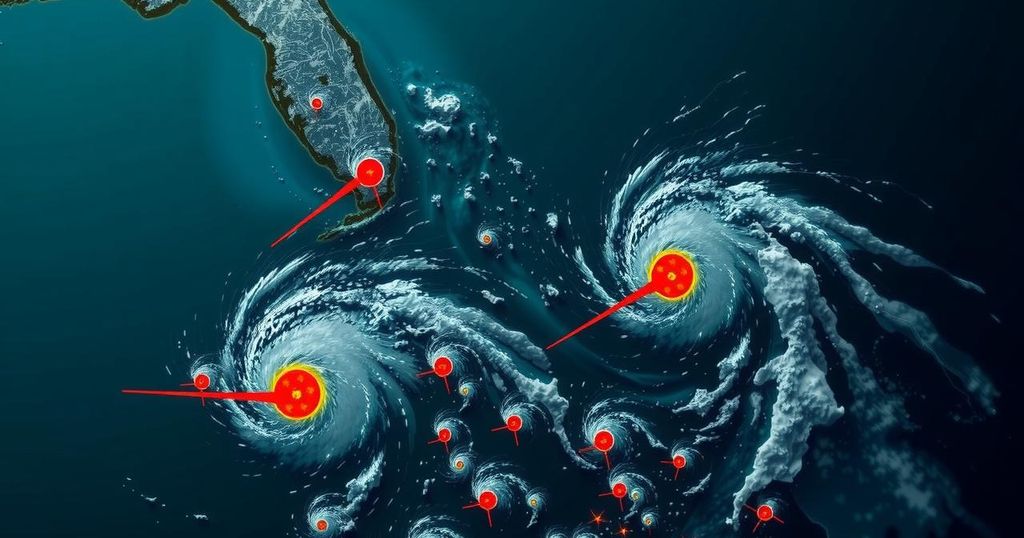The 2024 Atlantic hurricane season ranks among the deadliest, with four storms causing over 300 deaths across various states. Hurricane Helene, notable for its strength and widespread impact, was responsible for a majority of these fatalities. Historical comparisons indicate that this year’s death toll is surpassed only by catastrophic events in 2005 and 2017, emphasizing the critical need for improved storm risk communication.
The 2024 Atlantic hurricane season is poised to be remembered as one of the most catastrophic in modern U.S. history, with four hurricanes resulting in over 300 fatalities across regions from the Gulf Coast to the Appalachians. Among these storms, Hurricane Helene, which made landfall on September 26 in Florida’s Big Bend region, is particularly notable for its destructive intensity and durability. It produced tremendous winds, heavy rainfall, and severe flooding, affecting areas as far as western North Carolina, which is 500 miles inland.
Helene alone accounted for 225 of the total fatalities, while Hurricane Beryl contributed 45 deaths, Hurricane Debby caused 10, and Hurricane Milton resulted in 24 fatalities. According to the National Oceanic and Atmospheric Administration (NOAA), these figures place 2024 behind only the disastrous years of 2017 and 2005 in terms of total U.S. hurricane-related fatalities, underscoring the significant impact of these weather events. The historical context reveals that only Hurricane Maria, which devastated Puerto Rico in 2017 with over 2,900 deaths, and Hurricane Katrina in 2005, which killed more than 1,800 in Louisiana and Mississippi, recorded more fatalities.
In light of the extensive loss of life associated with Hurricane Helene, Jamie Rhome, deputy director of NOAA’s National Hurricane Center, emphasized the necessity of learning from these incidents. He noted the importance of improving communication regarding storm risks to ensure better preparedness and potentially save lives in future hurricanes.
The 2024 Atlantic hurricane season has been marked by extreme weather activity, leading to a significant loss of life and highlighting vulnerabilities across the United States. Historical data from NOAA indicates that hurricanes can cause substantial fatalities and disruption, particularly in vulnerable coastal and inland areas prone to severe flooding and wind damage. As climate change potentially alters hurricane patterns, understanding these events is critical for developing effective disaster preparedness strategies and improving response measures during hurricane seasons.
In conclusion, the 2024 Atlantic hurricane season has emerged as one of the deadliest in recent history, with significant fatalities stemming from several hurricanes, particularly Hurricane Helene. The tragic loss of life signals the need for enhanced communication strategies regarding storm risks and highlights the ongoing challenges posed by severe weather events. As we reflect on these lessons, it is imperative to bolster hurricane preparedness and response efforts to minimize future casualties.
Original Source: www.eenews.net







